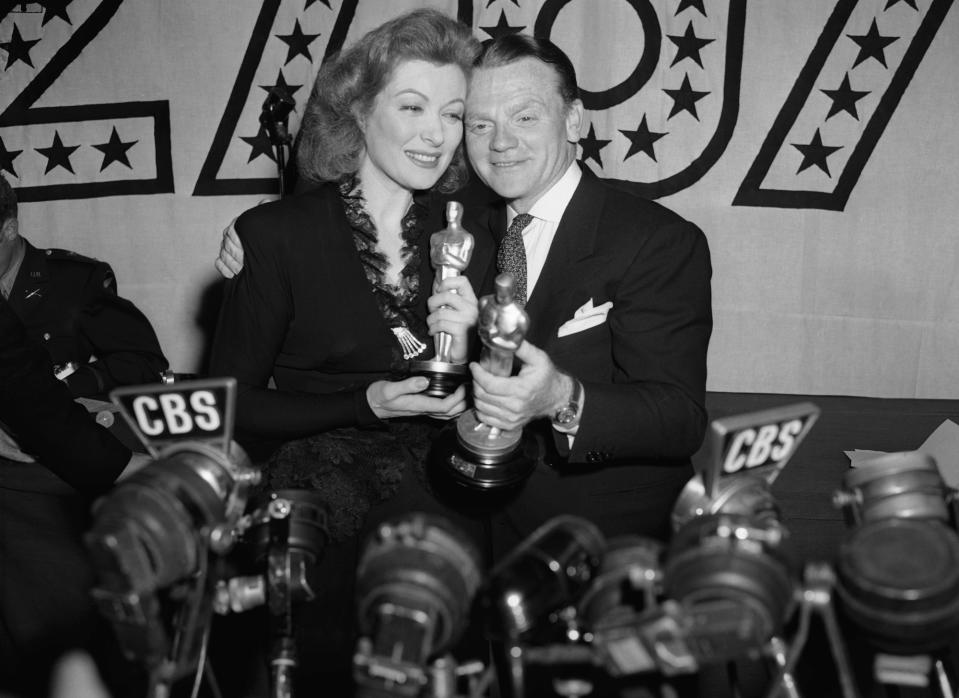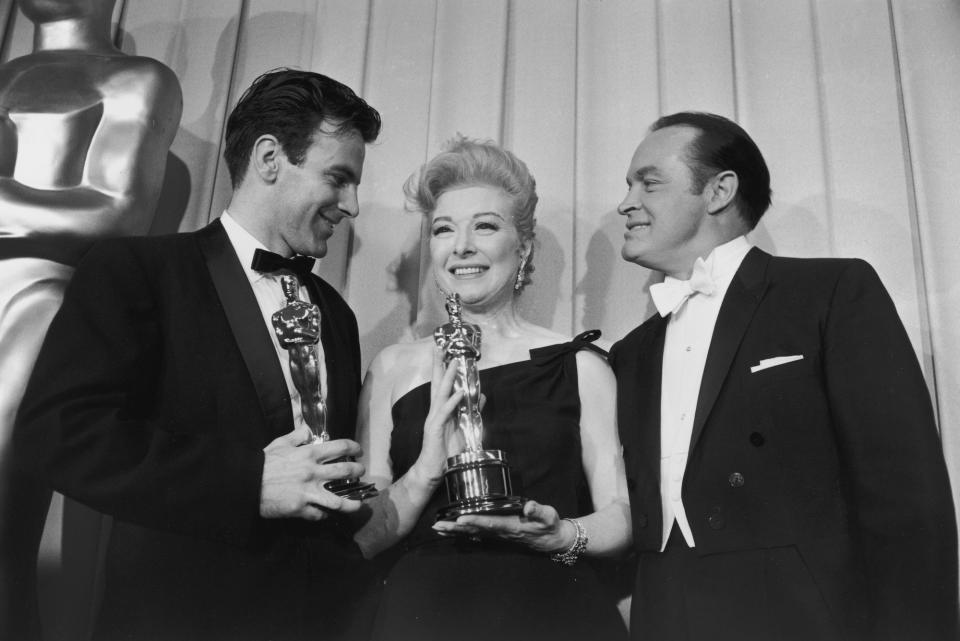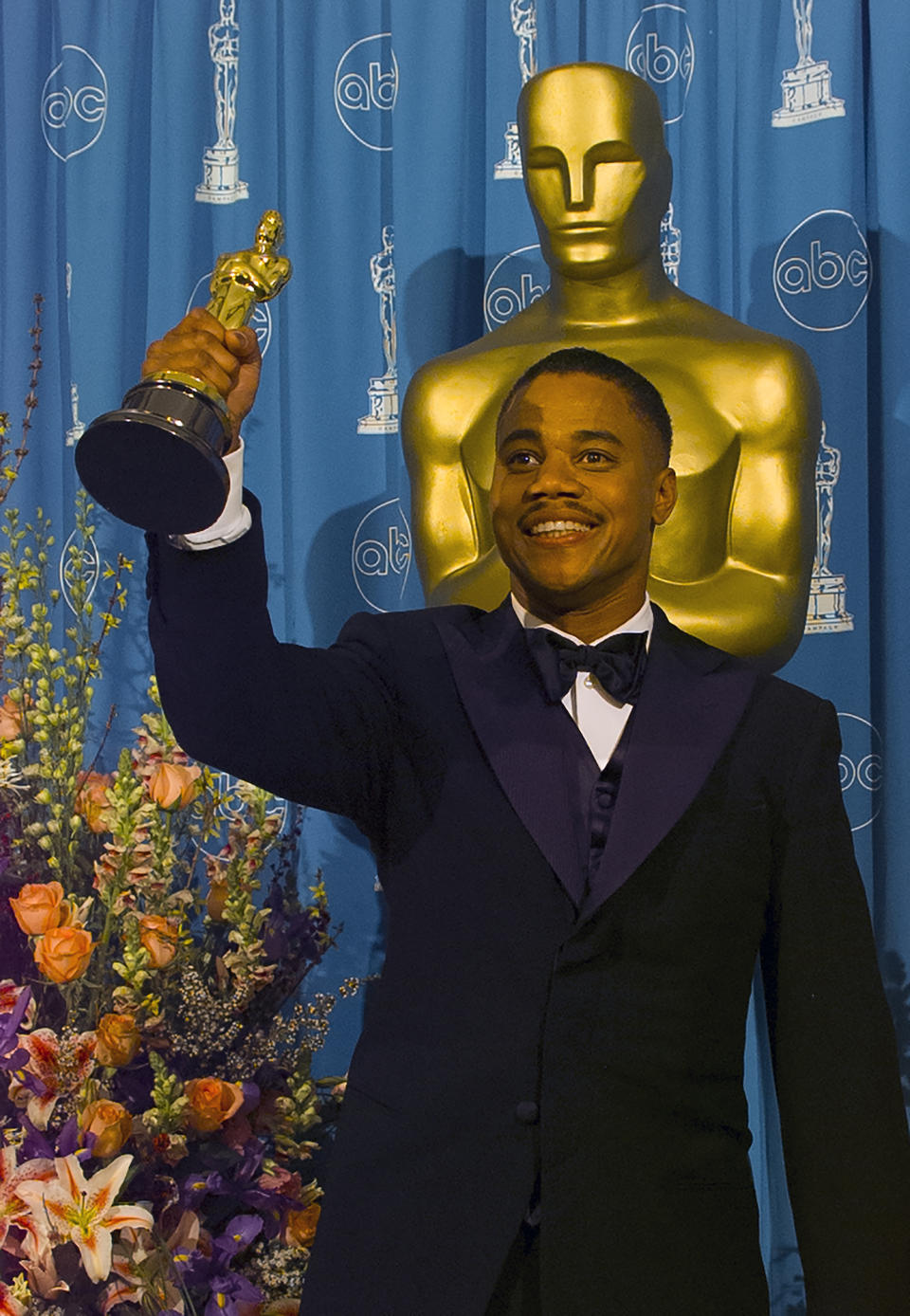The Oscars’ History With Long Speeches — and What Really Happens When Stars Get Played Off

Ah, the Oscars. Movie magic, Hollywood royalty dressed to the nines and speeches that go on way too long.
When Greer Garson won Best Actress for the title role of Mrs. Miniver in 1943, the Academy Awards had not yet imposed time limits on speeches. She was therefore able to ramble on for five-and-and-half minutes.
“Ladies and gentlemen, distinguished visitors from the armed forces, Governor Warren, honored guests, Mr. Chairman – Mr. President Chairman: Thank you. That is really all there is to say; but, as this is after all the opportunity of a lifetime, I hope you won't mind if I try to expand that word just, just a little,” she began.
Garson, who died at age 91 in 1996, still holds the record for the longest speech in Oscars history.
The Best Oscar Acceptance Speeches of All Time: Kate Winslet, Jennifer Lawrence and More!

The 45-second time limit we know and love today was announced in 2010 at the annual Oscar nominees lunch in Beverly Hills. The Guardian reported that the award show’s producers played a video at the luncheon to demonstrate the pitfalls of prattling on.
The tape included Renée Zellweger’s 2004 speech after winning Best Supporting Actress for Cold Mountain. Although Zellweger took her time thanking family members, cast and crew, she was not interrupted by the dreaded playoff music used to signal to winners that it’s time to wrap it up.
Others are not so lucky. In 1997, Cuba Gooding Jr. only made it about 30 seconds into his Best Supporting Actor acceptance speech for Jerry McGuire when the orchestra started playing. However, the music only emboldened him as he continued to shout “I love you!” to various people involved with the film. The crowd erupted into applause and whole sections of the auditorium rose to their feet.
Celebrities Can’t Miss an Oscars Party: A VIP Guide to Madonna, Beyonce and More 2024 A-List Bashes

There are other ways to game the system. In 2001, Julia Roberts managed to speak for nearly four minutes when accepting the Best Actress award for Erin Brockovich by appealing directly to conductor Bill Conti.
“Sir, you’re doing a great job. But you’re so quick with that stick. So why don’t you sit? Because I may never be here again,” she quipped.
Despite Roberts’ playful remark, Bill Ross, another frequent Oscars conductor, has denied that the orchestra has any say in when the playoff music starts.
“It’s the director of the show. People think it’s the guy with the baton who’s making that call, and I assure you it’s not,” Ross said during a 2012 interview with the American University radio station WAMU, adding that his own son had pleaded with him to stop cutting people off.
Stars and Movies That Made History at the Oscars: From Meryl Streep to Halle Berry
So, how do the showrunners decide when to shut down a speech? Oscars producers Ricky Kirshner and Glenn Weiss shed some light on the matter during a March 2023 interview with CNN.
“If you are giving a heartfelt, well-meaning speech, you will not get cut off,” Kirshner said. “If you start reading off your grocery list of what you need to do tomorrow, probably the music’s gonna come in.”
Weiss noted that before the music starts, winners get reminders on the teleprompter that their time is ticking.
“Nobody — to say it clearly — wants to play music,” he said. “We hope that everyone respects [the time allotted] and if everybody does, there’s no music playing.”
The 96th Academy Awards will air on ABC Sunday, March 10, at 7 p.m. ET.
